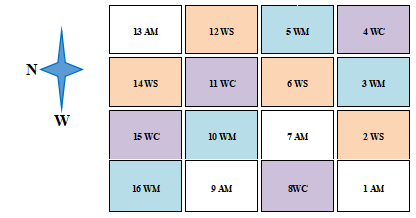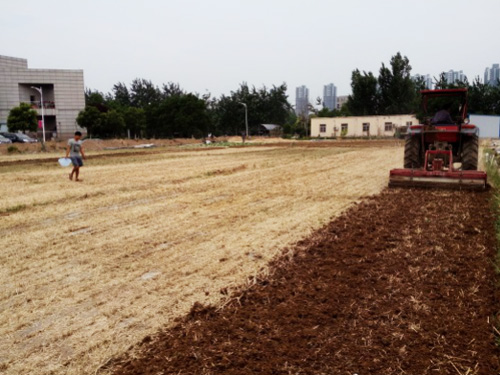Scientific Question
Long-term and excessive fertilization in farmland ecosystems may lead to soil acidification and consequent environmental pollution. Leguminous crops or green manure (such as alfalfa), as nitrogen-fixing plants, fixed nitrogen from atmosphere by the rhizobia, which could increase soil fertility and crop yields. Comparison with conventional agriculture, legume-based cropping rotation can reduce the use of nitrogen fertilizer. Traditional rotation systems (wheat-maize and wheat-cotton) in North China Plain always require a large amount of chemical fertilizer. Therefore, sustainable cropping rotation is needed to alleviate environmental problems. In this study, two legume crops (soybean and alfalfa) were used to replace maize and wheat in summer and winter, respectively, to reduce the use and negative impacts of fertilizers on the environment.
Experimental Design
This experiment was randomly assigned to four treatments, with each treatment having four replicates. The four treatments included: wheat-maize (WM), wheat-cotton (WC), wheat-soybean (WS) and alfalfa-maize (AM). Sixteen plots (15.5 × 8 m2) were arranged into four rows and four columns, with 0.5-m-wide walkways between plots.

Financial Support
Science and technology project of Henan Province (122101110800), effects of legume based crop rotation on crop yield and farmland ecological environment in Huang-huai-hai Plain.
Members
Jiaojiao Zhao, Yafei Ma, Jiajia Zhang.


